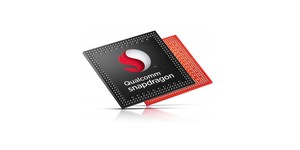Qualcomm Centriq chips picked for Hatch streaming platform
February 21, 2018 | 11:24
Companies: #arm #hatch-entertainment #qualcomm

Qualcomm's fledging data centre arm has signed a deal with games-on-demand start-up Hatch Entertainment which will see the former's Qualcomm Centriq 2400 Arm-based server chips powering the latter's cloud gaming service - albeit one which serves a definite niche.
The latest attempt to break into the x86-centric data centre market with an Arm-powered processor - previous notable efforts including Dell's Copper family, AppliedMicro's X-Gene, and Cavium's ThunderX, not to mention AMD's Opteron A-series parts - Qualcomm's Centriq 2400 features 48 64-bit ARMv8-compliant Falkor processing cores built on a 10nm FinFET process node. That latter fact was trumpeted in the December 2016 announcement of the part, being as it was an arguable stage ahead of data centre giant Intel's leading-edge 14nm node.
Now, Qualcomm may have found the Centriq's killer app: cloud-powered gaming for mobile devices. 'Our vision is to let people discover, play and share great games instantly and in real-time, bringing people together over games they love,' explains Juhani Honkala, founder and chief executive of new Centriq customer Hatch Entertainment. 'Our collaboration with Qualcomm Datacenter Technologies is a significant leap forward in advancing our existing gaming technology and platform, which offers users a fun and completely new kind of gaming experience on mobile.'
The collaboration, the companies explain, will see Hatch switching to the Centriq 2400 for its game server farms, which operate slightly differently to the traditional render-then-stream-video approach of its competitors - a difference which, the company claims, allows it to send full-featured game content to low-powered devices at 60 frames per second at less than half the bandwidth of the competition.
The catch, though, becomes obvious with a glance at Hatch's game library: The company specialises in streaming mobile games rather than high-end PC titles. The fact that the majority of smartphone and tablet devices on the market today already use Arm-based processors means that said games are already compiled for Arm and thus directly compatible with Qualcomm's Centriq family of chips, whereas PC games are near-exclusively compiled for x86 and AMD64 architectures.
For Qualcomm, though, it's a big win for the Centriq family - and a niche that it may be hoping will help it avoid the pitfalls that have seen Nvidia, Samsung, Calxeda, and HP, among others, shift away from Arm-in-the-data-centre plans.

MSI MPG Velox 100R Chassis Review
October 14 2021 | 15:04








Want to comment? Please log in.